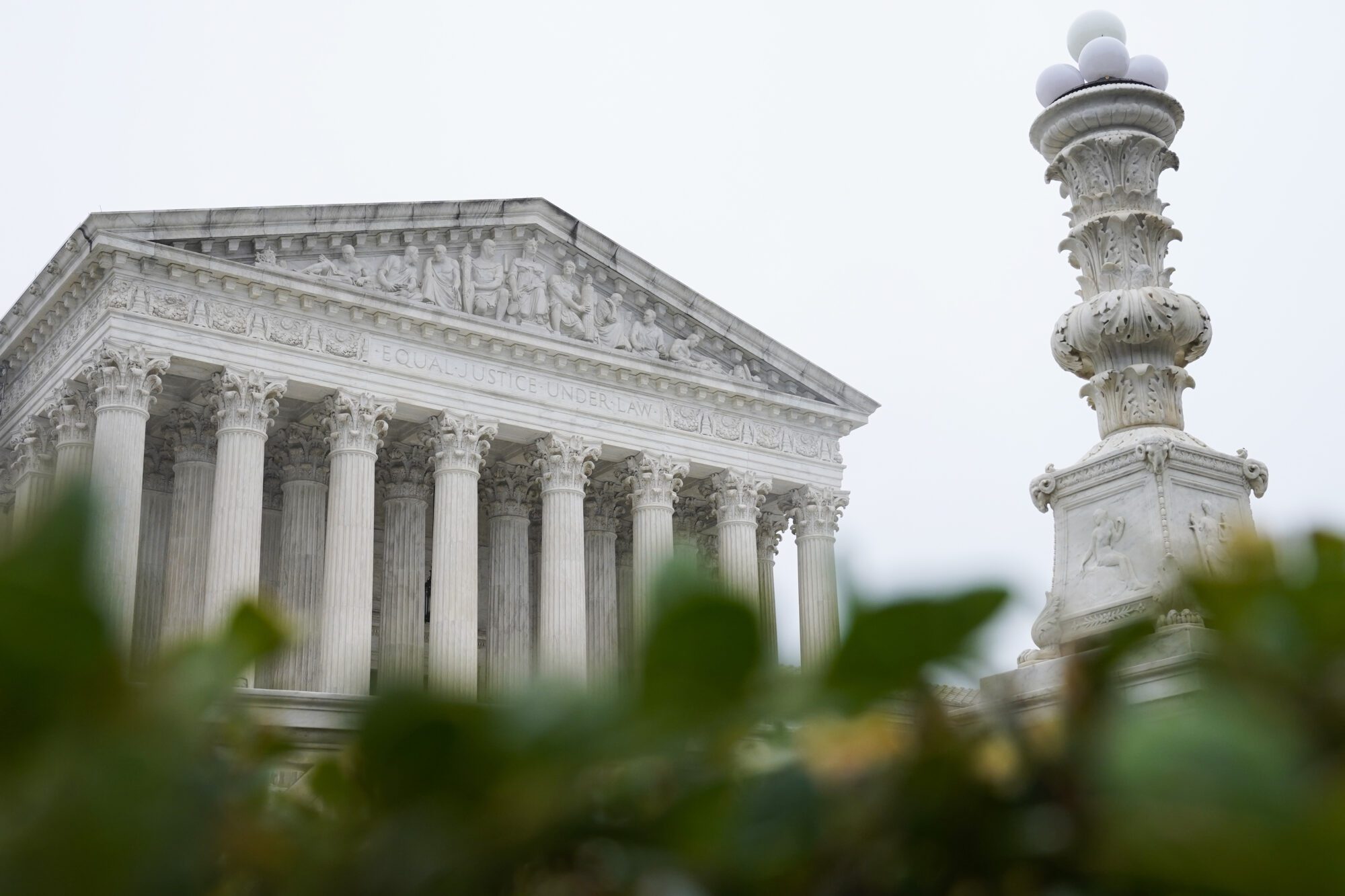
- The Mississippi Department of Public Safety Commissioner reminds the public that the Court’s decision did not address a still illegal gun modification – trigger switches.
The U.S. Supreme Court ruled 6-3 last week against the ATF’s position that adding bump stock modifications to a firearm effectively make them machine guns. The decision effectively lifts the ban on the devices that went into effect in 2019.
The Bureau of Alcohol, Tobacco, Firearms and Explosives took the position after a mass shooting occurred at a music festival in Las Vegas in 2017. The shooter fired hundreds of rounds into the crowd, leading to the deaths of about 60 and more than 400 injuries. The man responsible for the shooting took his own life before being apprehended by law enforcement.
According to the ruling issued by the Supreme Court on June 14, the ATF did not consider bump stocks to be the same as a machine gun prior to the Las Vegas shooting. Machineguns are regulated and defined as firearms that only require one trigger pull to fire consecutive shots while the trigger is held down.
“For many years, the Bureau of Alcohol, Tobacco, Firearms and Explosives (ATF) consistently took the position that semiautomatic rifles equipped with bump stocks were not machine guns under §5845(b),” the Supreme Court ruling states.
Bump stocks are modified stocks for semi-automatic weapons that allow the gun to move with the recoil generated when the gun is fired. That motion caused by the recoil allows the gun’s operator to simulate bumping the trigger to quickly fire rounds in succession. However, a similar effect can be achieved without a bump stock through many individual trigger presses in succession. The Supreme Court ruling overturned the Trump-era ban because a gun can be operated in a similar manner without a bump stock installed.
“A shooter who bump fires a rifle uses the firearm’s recoil to help rapidly manipulate the trigger. Although bump firing does not require any additional equipment, a ‘bump stock’ is an accessory designed to make the technique easier. A bump stock does not alter the basic mechanics of bump firing, and the trigger still must be released and reengaged to fire each additional shot,” the Supreme Court ruling states.
The ruling was issued as part of a lawsuit filed by Michael Cargill, who reluctantly turned over his bump stocks after the ban took effect. In his filing, Cargill stated that bump stocks do not meet the definition of machine guns because it still requires a trigger pull to fire each shot.
“Nothing changes when a semiautomatic rifle is equipped with a bump stock. Between every shot, the shooter must release pressure from the trigger and allow it to reset before reengaging the trigger for another shot. A bump stock merely reduces the amount of time that elapses between separate ‘functions’ of the trigger,” the decision states.
The ban made it to the U.S. Supreme Court after being heard and upheld in all of the lower courts.
In January of this year, Mississippi U.S. Senator Cindy Hyde-Smith (R) joined other Senators in signing and filing a brief in the case in question, asking the Supreme Court to reverse the ban.
“I think the Supreme Court reached the right decision in recognizing the ATF exceeded its authority and, importantly, affirming law-abiding Americans have a constitutional right to own firearms. The focus should be on enforcing gun laws and addressing the real problems behind gun violence,” Senator Hyde-Smith told Magnolia Tribune this week.
State Senator Angela Hill (R), who serves as the chair of the Senate’s Constitution Committee, told Magnolia Tribune she agrees with the Supreme Court’s decision to lift the ban on bump stocks.
“I think the Supreme Court got it right,” Hill said. “The ruling basically stated that a bump stock did not qualify as the definition of a machine gun, because you still had to pull the trigger, you couldn’t just hold the trigger down and shoot consecutively.”
Senator Hill further stated that the U.S. Constitution protects the right to bear arms for law abiding citizens and does not include stipulations. She used that same reasoning when voting against HB 903 during the most recent legislative session, a bill that prohibits the “manufacture and possession of machine gun conversion devices.” That bill received the Governor’s signature and will become law next month. Hill was one of two senators to vote against the bill.
“So, that is what I was thinking about when HB 903 came through the Senate and that’s why I voted against it,” Hill explained. “Because when I read the second amendment it just says, ‘shall not be infringed.’ It’s doesn’t say, ‘except this one or that one,’ it just says, ‘shall not be infringed.'”
Hill also contends that even if the modification is banned in the future, those who do not typically abide by the law will find illegal ways to obtain the devices.
“We can ban it all day long for law abiding citizens, but the criminals are still going to find a way to get it,” Hill described.
State Senator Juan Barnett (D), chairman of the Senate Corrections Committee, said he disagrees with the Supreme Court’s ruling.
“I’m a military veteran and an avid gun owner, but I just don’t think that that we should get into that type of business of altering guns,” Barnett told Magnolia Tribune.
Even though he says he supports the Second Amendment, Barnett does not believe modifications that allow for an increased fire rate, regardless of how many times a trigger is pulled, should be legal.
“When we look at a lot of the shootings, a lot of them are the result of people purchasing those high-volume clips that are not according to what the manufacturer normally sells,” Senator Barnett described. “Or they put a bump stock on it to increase the amount of rounds that can be fired.”
Barnett suggested that if bump stocks are to remain legal, there should be regulations put in place.
“If you got a bump stock, it should be registered,” Barnett said.
Mississippi Department of Public Safety Commissioner Sean Tindell reminds the public that the court’s decision did not address a still illegal gun modification – trigger switches.
“From a legal standpoint, the Supreme Court’s recent decision in Garland vs. Cargill was about bureaucratic overreach through regulation,” Tindell, a former lawmakers and judge told Magnolia Tribune. “While the Supreme Court ultimately determined that classifying a ‘bump stock’ as a machine gun is not only improper but incorrect, the Court did not address the use of trigger switches. As long as switches are banned under federal law, they will be banned under Mississippi law. Those who possess or manufacture trigger switches will be subject to state prosecution.”
Trigger switches allow semi-automatic weapons like handguns to fire multiple rounds with a single pull of the trigger.











